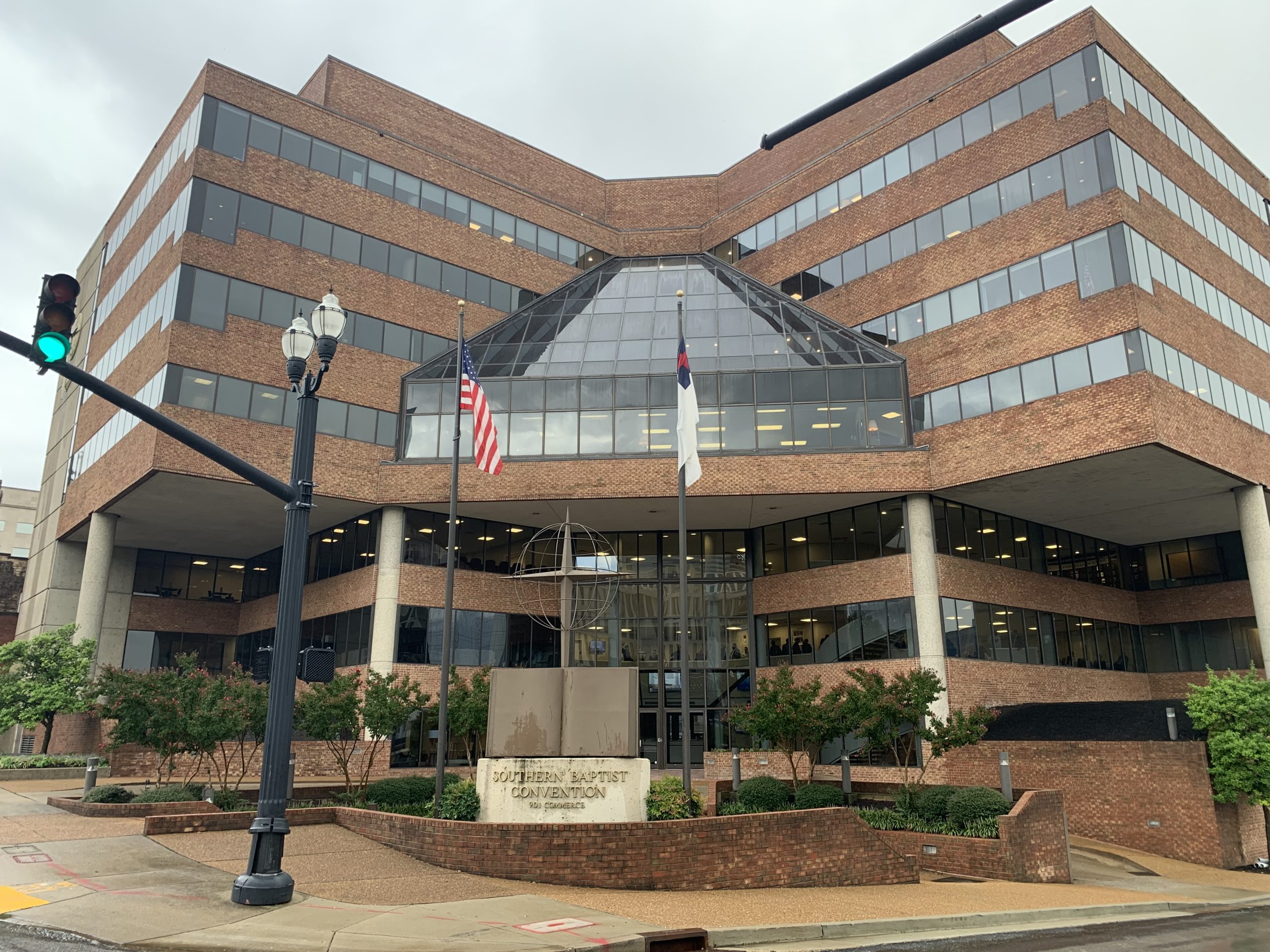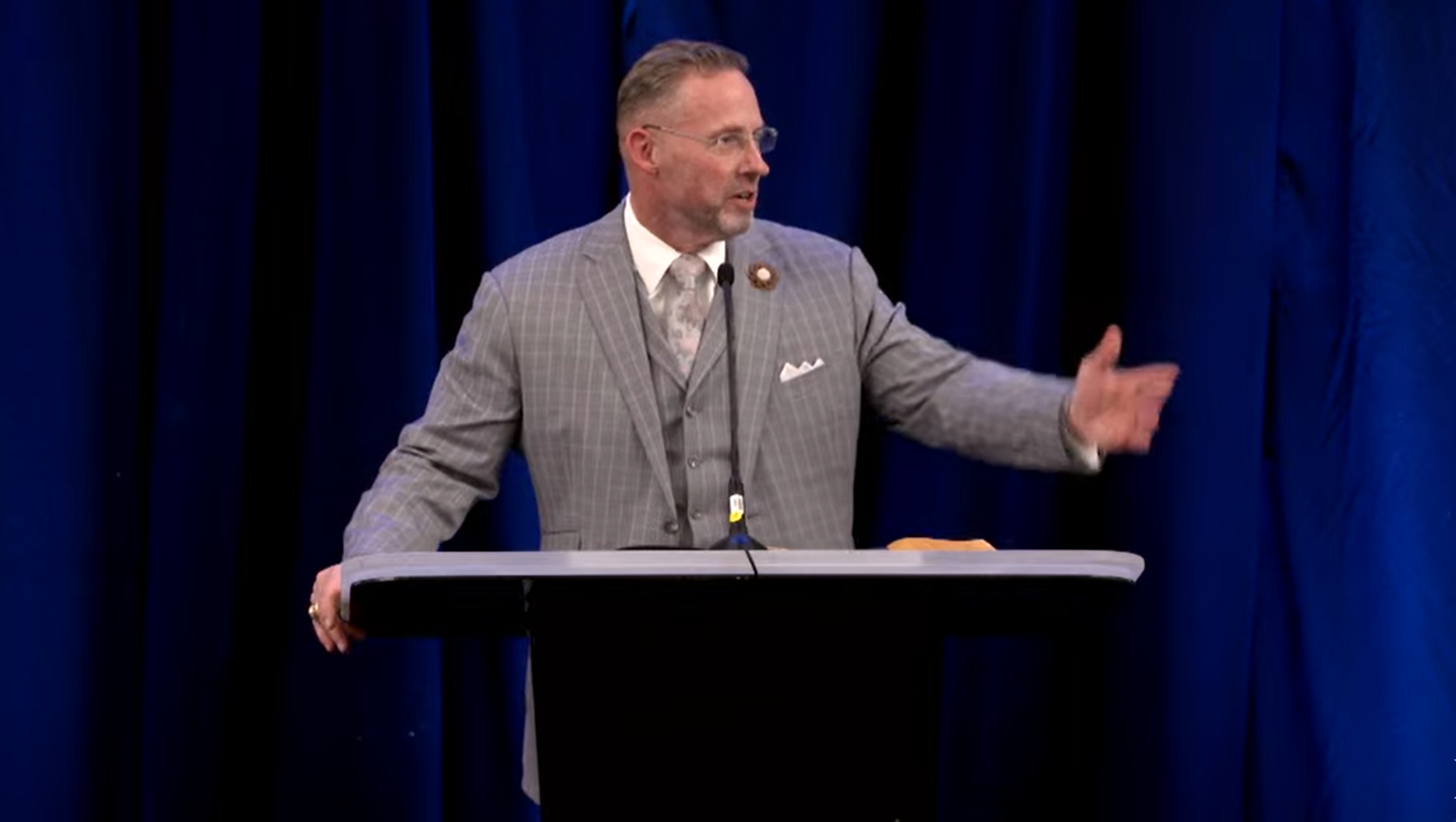Hundreds of pastors and prominent Southern Baptist leaders have published statements critical of the Executive Committee’s refusal to waive attorney-client privilege related to the independent sexual abuse investigation called for by messengers to the 2021 SBC annual meeting. At the same time, several EC trustees and others are pleading for the public to understand why they oppose waiving privilege as they continue advocating for the EC to vote against it.
Grant Gaines, who presented the original motion at the 2021 SBC Annual Meeting calling for waiver of privilege in the investigation of EC actions, told the Associated Press: “The groundswell of pushback to the Executive Committee’s refusal to waive attorney-client privilege is happening because Southern Baptists want justice for survivors and because Southern Baptists want to preserve our democratic polity,” Gaines said. “When an overwhelming majority of SBC messengers vote to do something, we want it to be done.”
The next meeting of the Southern Baptist Convention Executive Committee is set for Tuesday, Oct. 5, at 10:30 a.m. Central time. A final decision on the waiver of privilege is expected at that meeting. The meeting will be live-streamed at sbc.net/ec0921.
In addition to statements from each of Southern Baptists’ six Southern Baptist seminary presidents, other leaders voicing their concern include pastors, other church ministers, state convention executive directors and officials from other Southern Baptist fellowships and entities. For many, speaking out in defiance of other leaders in the SBC is unprecedented.
Local pastors
More than two dozen Tennessee pastors — including Gaines — released a statement reiterating the call for the waiving of privilege. Not doing so, according to the statement, would lead the pastors to have “unprecedented conversations” with their churches regarding stewardship and cooperation.
In South Carolina, 25 pastors issued a letter to the EC on Sept. 30, calling on them to waive attorney-client privilege or face consequences. South Carolina churches are many of the top Cooperative Program-giving churches in the Convention. In 2020, collectively, the churches gave more than $3.8 million through the Cooperative Program. The pastors, including EC board members Dwight Easler and David Sons, said if the EC fails to comply, they will lead their churches “to consider how to reallocate funds away from the Executive Committee while continuing to fund the cooperative mission and education endeavors that have always made Southern Baptists great.” Marshall Blalock, vice chairman of the Sexual Abuse Task Force, is also among the signatories.
On Sept. 30, 32 pastors from the Southern Baptists of Texas and the Baptist General Convention of Texas released a letter to the EC imploring them to “waive attorney-client privilege.” EC members Chris DuPree and Jared Wellman were included in those signing the letter.
Kentucky pastors issued a statement through the state convention in conjunction with executive director-treasurer Todd Gray saying that they “stand definitively behind the messengers” and “echo the disappointment” expressed by other state conventions over the lack of swift action.
Nearly 50 pastors from Mississippi stated that anything short of following the will of the messengers will be a “severe breach of Baptist polity and will display a complete lack of Christlike compassion for the victims of sexual abuse.”
Maryland-Delaware pastors expressed grief “that more than 100 days have passed since the Convention without any serious effort of the President and Chief Executive Officer to lead the Trustees to act swiftly and in accordance with the will of the messengers.”
More than 20 California Baptists issued a statement Oct. 1 calling on the EC to “to expeditiously fulfill the expressed will of the messengers at the 2021 Southern Baptist Convention in Nashville by agreeing to all of the terms set forth by the messengers and their duly appointed Sexual Abuse Task Force [SATF].” They wrote, “We consider anything less than these actions, approved by the overwhelming majority of messengers in attendance at the 2021 SBC, as a failure of your duty. While we acknowledge that there is financial risk associated with waiving attorney-client privilege and sharing an unredacted, public report, we believe there is greater long-term risk to the mission and integrity of our convention if we do not act now in regards to this issue.”
Louisiana Baptist pastors, on Sept. 30, wrote, “We are very discouraged that it appears the attempt of the majority of the SBCEC has been to avoid the will of the messengers in waiving attorney-client privilege within the scope of this investigation. Anything less than full cooperation to the motion of the SBC messengers damages our polity, our transparency, our witness and our justice to survivors.” Among those who signed the Louisiana letter to the EC was former SBC President Fred Luter, pastor of Franklin Avenue Baptist Church in New Orleans.
More than 60 Georgia pastors wrote EC trustees, “Standing together as Georgia pastors, united by a common gospel and a common mission, we call upon you to follow the will of the messengers … and waive the attorney-client privilege … so that, where necessary, any grievous work of darkness may be exposed and any wrong committed may be made right. Our priority must not be insurance or protecting our money above all else, but righteousness and walking in the light.” Among those who signed the Georgia letter to the EC was former SBC President James Merritt, pastor of Cross Pointe Church in Duluth, Georgia.
More than 75 Alabama Baptist pastors and leaders signed onto a letter to EC leaders, emphasizing failure to waive privilege “would represent an unprecedented move away from our well-established polity and would potentially give cover to those the investigation was meant to confront. … The eyes of survivors, the messengers and indeed the world, now fall upon us. How we navigate this moment will say much about our convictional beliefs and about our ability to carry out true Gospel mission going forward.”
Resolutions
On Sept. 28, the officers and trustees of the Baptist State Convention of Michigan passed a resolution calling on the SBC Executive Committee to follow the will of the messengers. Tim Patterson, executive director of the BSCM, said the group plans to take the resolution to the convention’s annual meeting in November.
In Florida, the lead team of the Jacksonville Baptist Association also posted an approved resolution on Twitter calling for SBC EC to follow the will of the messengers.
In an Oct. 1 statement, New England pastors wrote the EC, “What will it profit the SBC to act in her financial interests only to meet the judgment of God? For the sake of souls, justice for survivors, and the Kingdom of God, repent and do what is right.”
State conventions
In Florida, Tommy Green, executive director-treasurer of the Florida Baptist Convention, released a letter to pastors via social media Sept. 30. In it he said, “I join with you in deep concern and frustration over the recent activities of the Executive Committee in reference to the directive of the SBC Messengers. My prayer is that this matter will be resolved quickly.”
Green said, “I have received inquiries in reference to Cooperative Program giving. The question focuses on – Can we bypass an SBC entity with our CP gift? The answer is that the Florida Baptist Convention exists to serve the churches of the Florida Baptist Convention. If a church instructs us in their giving to not fund a certain part of the total CP program, we will do exactly what the church requests. You can communicate this desire in your CP remittance sheet that we receive with your CP gift.”
Todd Unzicker, executive director-treasurer of the Baptist State Convention of North Carolina, also released a letter to the SBC EC Sept. 30. He wrote, “To date the SBC Executive Committee has not agreed to follow the expressed will of the messengers. This resistance has damaged trust within our family of churches, and far worse, has devastated survivors of sexual abuse.”
Oklahoma interim state executive director Joe Ligon shared the concern of Oklahoma Baptists in a letter to churches and pastors stating that “Oklahoma Baptists affirm the will of the messengers regarding this motion.”
Rick Lance, executive director of the Alabama State Board of Missions, wrote, “We have the highest level of frustration I have ever witnessed in the life of the SBC.” He went on to say, “I trust and believe that by the end of the next SBC Executive Committee meeting on Tuesday, October 5, the wishes of the SBC messengers will have been honored.”
Northwest Baptist Convention Executive Director Randy Adams, a 2021 candidate for SBC president, wrote, “The SBC Executive Committee must remember their fiduciary responsibility includes protecting the integrity of the Cooperative Program. CP has declined over than $80 million since 2007, not including inflation. Ignore SBC messengers and that decline will seem modest.”
Eric W. Ramsey, executive director-treasurer of the West Virginia Convention of Southern Baptists, wrote, “Finally, I hope this issue will find resolution in accordance with the will of the messengers representing 50,000 churches. Let’s join together in prayer to that end and for the victims and survivors hurt by the actions of leaders they trusted.”
Jesse Ricones, executive director of the SBC Hispanic Council, released a statement on behalf of the group urging the EC “to comply with the clear and precise directive that was approved, almost unanimously.”
Why some are saying not to waive privilege
Offering a different perspective was Scott Colter, a leader with the Conservative Baptist Network, who recently wrote the EC to praise the body for so far refusing to waive privilege and not putting the entity at risk.
He described his position in contrast to the “rising pressure of the mob mentality” and those who say “you must either choose to follow Jesus or follow lawyers.”
Also voicing support for the EC to forego waiving attorney-client privilege are trustees Joe Knott of North Carolina and James Freeman of Missouri. In an Oct. 3 letter to their fellow trustees, Knott and Freeman, both attorneys, wrote that EC trustees “are trustees, not employees, which means we are empowered and required to use our best judgment to manage the affairs of the institution which we hold in trust for the Convention. We must consider and give proper weight to all the information that comes to us, which may or not have been available to the Convention as a whole. The trustee is a fiduciary, which imposes on us a legal responsibility to use his or her best judgment to make good decisions on behalf of the institution he, along with other trustees, holds in trust. That duty is non-delegable.”
Knott and Freeman explained that “unintended, but very real consequences,” such as loss of insurance and risk of mission dollars, had been discovered since the motion was approved in June. “To ignore this information would be negligence, a violation of our legal duty to act as a fiduciary, and poor stewardship. If we are employees, we obey an order because the boss tells us to obey. If we are fiduciaries, we exercise our best judgment to get the mission dollars to the missionaries.”
Knott and Freeman prepared the letter in an attempt to explain more thoroughly their reasoning for opposing waiving privilege because “it is difficult to grasp our areas of agreement and disagreement in sound bites, motions, one speaker followed by another (and another) each with a slightly different reason for being pro or con.” Knott’s quick response during the Sept. 21 debate that “15,000 messengers can’t tell us what to do” has been picked up by several news reports and caused concern over what he meant. His letter is an attempt to explain.
The letter also shared a list of areas in which EC members currently agree, including that “an audit should be done.”
However, Knott and Freeman said, “We do not agree on whether or not we should waive attorney client privilege in a way contrary to established best practices in the industry. We do not agree because, among other reasons, to do so would probably cancel our liability insurance and at best bring coverage into question in every case. If we have no attorney client privilege, our attorney could and would be called as a witness against us in deposition and trial. Would any reputable attorney represent us under those terms?
“The tragedy of all this; thorough and successful internal audits are conducted every day with no waiver of attorney client privilege and no threat to insurance contracts,” Knott and Freeman stated in the letter. “Bad things are often uncovered by audits and executives are fired. The executives do not control the audit. If they try, it is reported.
“Audits are designed to uncover and make public unpleasant truths. We would hire the lawyer and instruct him to oversee a full and fair investigation. That is what we would pay him to do,” the letter states. “It is my understanding that an audit conducted according to industry standards will see everything it wants to see. No one can stop it from investigating anything it want to investigate. At the end of the investigation the supervising lawyer and investigators will determine where attorney client privilege will be waived, what can and cannot be made public. This will be done with a professional commitment and ethical duty to see that no wrongdoing will be hidden and no guilty party will be protected. Find the wrong, protect the innocent.
“The attorney supervising the audit is not an advocate for either party. He is hired by the agency investigated and he in turn hires the (in our case) agreed-upon investigating agency, Guidepost. This preserves attorney client privilege. If Guidepost disagrees with what should or should not be made public, they will note the disagreement, and if no agreement can be reached, a Judge will decide to include or exclude. At that point all privileges will be waived on information relevant to the inquiry and made public. While some of our trustees disagree with this protocol, it is the industry standard.”
Houston-based attorney Mark Lanier also shared a statement with EC members in opposition to waiving attorney-client privilege and made public a list of bullet points to go along with the letter.
His opinion states that “once privilege is waived, it is waived for all purposes and all time” but that “lawyers in litigation can always make strategic waivers should such be important for fairness or justice. However, that should never be done in a sweeping way without input of the litigating counsel.”
“This is not a case of weighing the value of a woman’s rights against those of litigation. The rights of everyone should be sacrosanct,” Lanier wrote. “But, those rights exist within a privilege. This privilege ensures our courts work to their best. These privileges exist when murderers are on trial, when corporate finances are on the line, and when the court is deciding which parent takes custody of a child. All of these are important judicial matters, but all include the exercise of the attorney client privilege.”
Lanier is a member and Sunday School teacher at Champion Forest Baptist in Houston, and according to a Baptist Press article, has represented Paige Patterson and Paul Pressler, both high profile personalities in SBC life.
Ronnie Floyd, who was elected in April 2019 by the EC board of trustees to fill the role of president and CEO, released an open letter last Friday (Oct. 1) sharing how the EC has been “trying to wrestle with accomplishing this process in the right way as they weigh their duty as trustees to conduct the business in a manner which does not bring harm to either the entity they serve or the SBC they serve.”
What type of waiver is anticipated?
According to the Sexual Abuse Task Force’s Oct. 4 update, the waiver of attorney-client privilege noted in the contract with Guidepost is not a “blanket waiver.”
“It is limited in both time and scope. The time period is only between 2000 — June 2021,” the update explained. “The scope is also limited to ‘any allegations of abuse, mishandling of abuse, mistreatment of victims, a pattern of intimidation of victims or advocates, and resistance to sexual abuse reform initiatives. The investigation shall include actions and decisions of staff and members of the Executive Committee … .’ Thus, any attorney-client privileged information that is not relevant to that scope will not be requested.”
To read the full statements and see all supporting documentation provided by the Sexual Abuse Task Force, visit sataskforce.net.
Click here to learn more about the Southern Baptist Convention’s Executive Committee and its duties.










